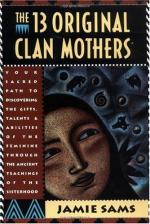|
This section contains 545 words (approx. 2 pages at 300 words per page) |

|
Faith and Reason.
The rise of modern science spawned such controversies as the debate over whether or not the universe was the result of divine creation or natural evolution. Intellectuals regarded science as rational and objective rather than intuitive and subjective. The empirical scientific method implied that the scientist understood and controlled the forces of nature. Nothing was mystical, magical, or divine in the laboratory. But at the beginning of the scientific revolution when America was first explored and colonized, faith and reason seemed complementary. Nicholas Copernicus was a Catholic clergyman. Christopher Columbus thought God directed his voyages to America. Carolus Linnaeus believed that God had created an unchanging Chain of Being neither subject to evolution nor to extinction. Cotton Mather was a physician and scientist but also a leading Puritan clergyman. The Protestant leader John Calvin welcomed the discoveries of science. The Quaker...
|
This section contains 545 words (approx. 2 pages at 300 words per page) |

|




